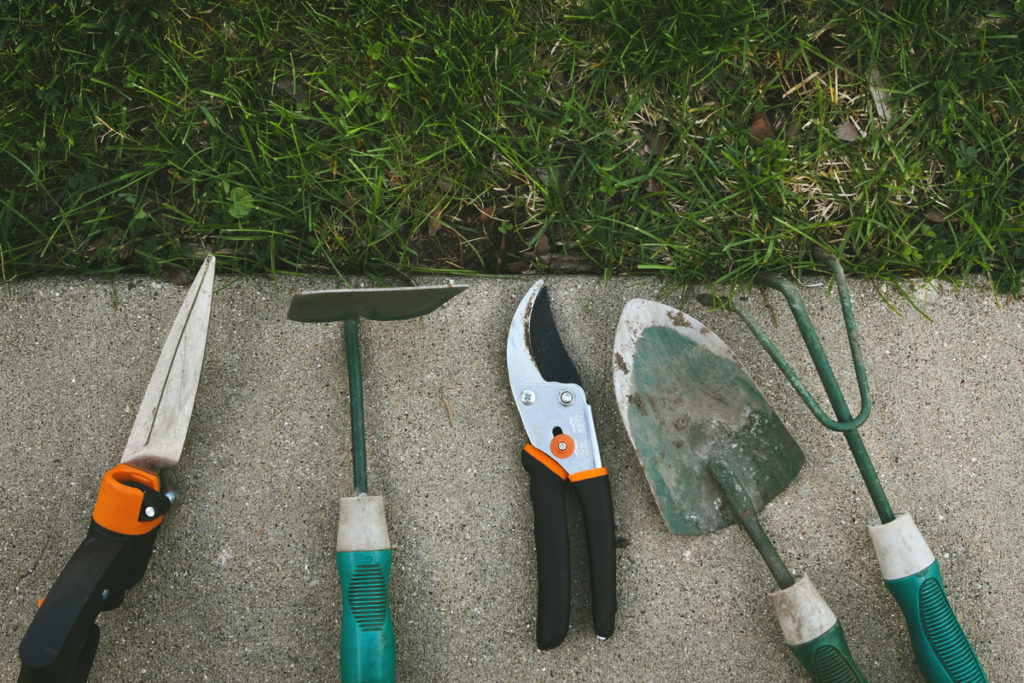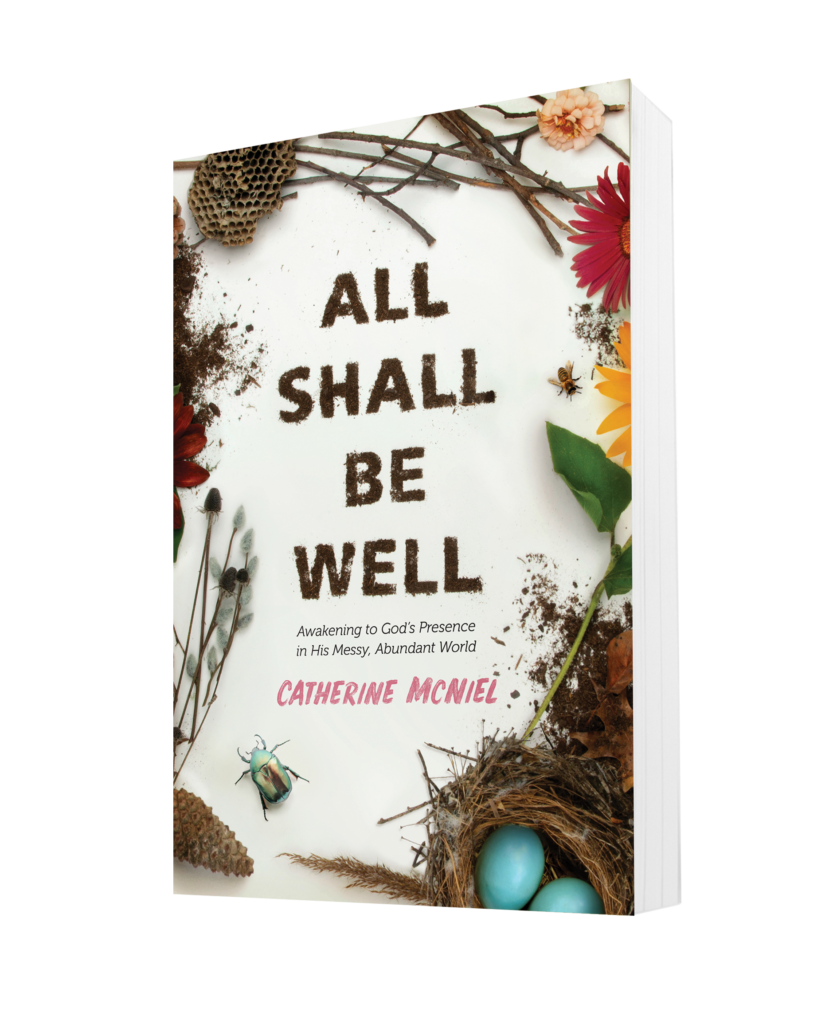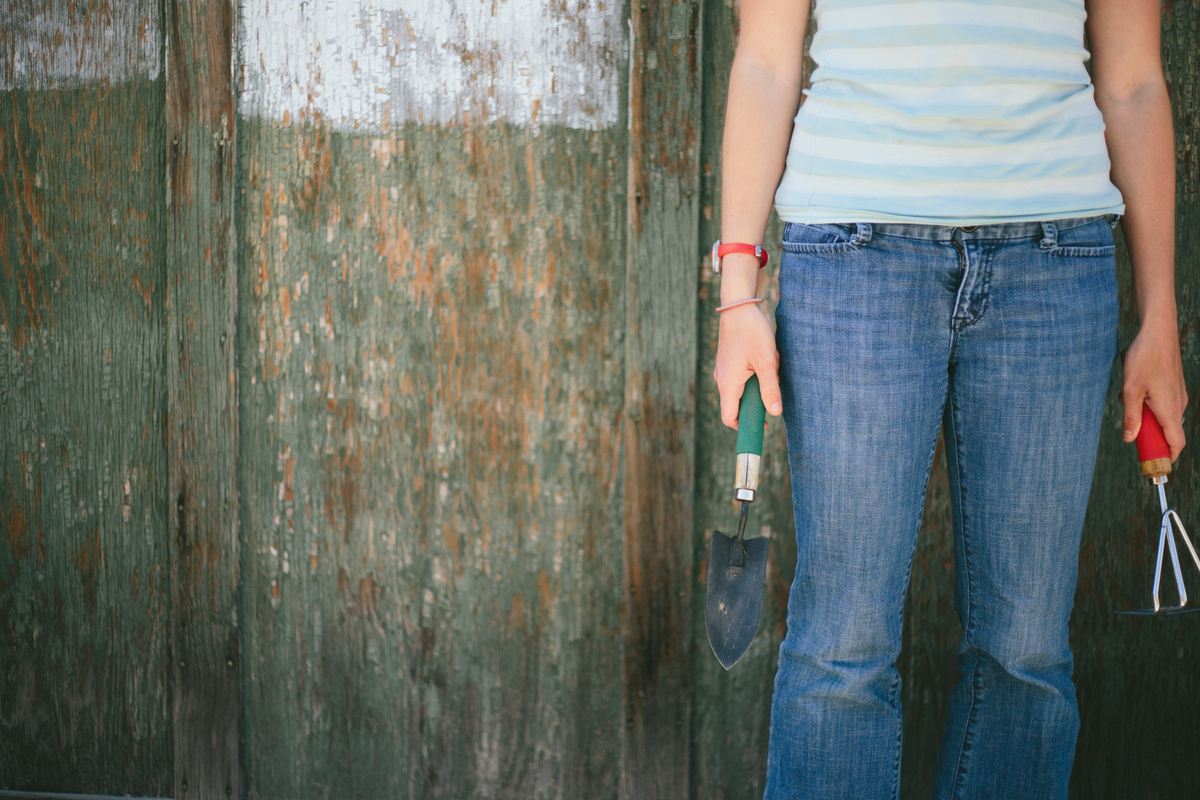On a hot summer afternoon, I’m at the pool, smearing sunscreen on my squirming child’s face, expertly avoiding her eyes while never taking my eyes off the other two children in the water. Let me tell you: If there’s anywhere adulthood fails to live up to the brochures, it’s poolside.
Looking around the deck, I notice that we swimmers are broken into two groups. At the deep end, teens and twentysomethings cluster in pairs of twos and fours, while in the shallows, parents, grandparents, and aunties surround babies, toddlers, and preschoolers. Each side models vastly different swimming suits, some showcasing strong and beautiful bodies, others chosen for practical material carefully constructed to keep everything in place while chasing toddlers, tossing preschoolers into the water, and nursing babies (often all at once). At the deep end, everyone entangles themselves, flirting, laughing, splashing. The shallow end of the pool has a great deal of laughing and splashing too, but more disentangling from small children while keeping everyone alive, protected from the sun, and filled with enough snacks and drinks to avert disaster.
One of these groups looks casual and carefree. The other looks a bit hassled and harassed.
Although these two displays of “swimming” appear as different as night and day, I know for certain that one leads directly to the other. At least for some, the carefree flirtations at the deep end result in the inflatable floaties and SPF 50 at the shallow end.
All this is by design, of course: The fun and energy of new life evolves naturally into the duties and exhaustion of adulthood.
Cultivate and Keep
In the cacophony of life we’ve been relishing, the delights are endless—as is the work, the labor, the ongoing maintenance. This garden grows a bit unruly and needs so much care.
So many things need doing all at once. The sun accommodates as best it can, rising early and setting late. There are gardens to weed, ball games to play, lawns to mow, lakes to splash in, barbeques and bonfires to light, picnics to organize. This month, a crisis sprung up at my office, and I’ve been called in to work long hours. Family birthdays, recitals, and doctor appointments cram the family calendar for the next several weeks. Appointments and deadlines peek around every corner, and the piles of papers waiting for me to sort, sign, and return have reached fire-hazard status. This is my garden, the patch of life and community for which I’m responsible. It’s a bit overgrown, yes, and the only way to cut it back is to put on a pair of sturdy shoes and get to work.
There’s always something on the urgent list. We’re responsible for feeding, warming, and sustaining ourselves and our families, investing in our communities, contributing to the flourishing of the earth for the sake of generations to come. It is our turn to stay the course, to persevere. From the joys and delights flow the duty; from the labor and work flow the pleasures. The two are not opposites, but side-by-side, intermingled, tumbling through time entangled by faithfulness.

We don’t need a special commandment or sacred story to prove any of this: Our own lived experience is proof enough. We are hungry and cold, so we work. Period.
And yet, a story is given to us. After the Gardener finished his careful planting, he took the person formed from clay and placed him in the garden “to work it and take care of it.”[i] Other translations describe this vocation as “tend and watch over” or “cultivate and keep.”[ii] Whatever words you prefer, the storyteller’s point is clear: Our reason for being here, at least in part, is to partner with God in cultivating and caring for the earth. We create the present and future alongside him, partaking in both the labor and the delights. Our duty is to protect and provide, to pour out the energy of our life. Though such work never comes with an official position description, title, or salary, our children, parents, grandparents, siblings, and neighbors need tending. There is no corner of the universe that is outside our zone of accountability. We must take care of each other. This is part and parcel of the original “very good” design.
Even in the most menial-seeming tasks of daily living—dishes, toilets, laundry—our steadfast efforts create life and living for ourselves and those who lean on us. The demands of perseverance may not allow for the time or energy to reflect on any of this, to look around and notice the garden of life our unending labor produces, but it’s true all the same. There is creation here, life-giving, like ice water on a hot day. My body and mind are weary, there is so little freedom or time to spare; but as we continue faithfully bending our backs side by side, the fruit of our labors is life.
Toil and Trouble
My friend calls me on the phone: She feels called to ministry, and the doors of opportunity have finally opened wide. But she’s been diagnosed with a degenerative illness and can’t get out of bed. Another friend works long, long hours at a job he hates—but because he does, his children have good health insurance. My community gathers around one of our own, who can’t figure out if she should leave her husband, finally, or dig in and find a way to stay.
Somehow, we expect life to be easier than it is. We picture a joyful experience, occasionally dipping down through setbacks—manageable ones like broken sewer pipes or a bout with the common cold, just as often soaring through the heights of success and vacations and fulfillment. Yet reality seems much more erratic. Life is hard, bona fide hard. We work until our strength gives out, but responsibilities still nip at our heels. We fight through hard relationships, dead-end jobs, cancer diagnoses, unhappy endings. Even holidays and vacations are scattered with conflict and disappointment. What feels like a temporary dip becomes the norm.
Why is life so depleting, when we want so badly for it to be satisfying? Faithfulness in the small-but-joyful minutiae of everyday living is one thing; faithfulness through years of darkness requires a different set of muscles entirely.

There’s a growing buzz these days that adulthood should include less duty, more living to please ourselves. Let’s throw off the shackles of cultural expectations and do what feels good, not what we’re told we must do—or so these voices recommend. There’s value in overthrowing outdated expectations, but we’ll never find the freedom we want in living primarily for ourselves. As Leslie Leyland Fields asks, “Is [living for myself] really all there is? Did we survive childhood, adolescence, and our twenties and thirties to arrive on the doorstep we left as children? Surely not.”[iii]
Grown-ups leave the party early and go to bed because work starts at 7:00 a.m. We get up in the middle of the night when we’re sick because the baby is crying. We turn down a dream job because weekly travel isn’t possible while caring for a terminally ill family member. We do what we must do. Or, as my husband likes to say, “We must learn to do what we do not want to do.”
Somewhere around the middle, life becomes overwhelming, untenable. Must I live with these people for the rest of my life? Will this disease make getting out of bed each day painful until I die? The years ahead pile up in a dizzying way when we think about the cycles of pain and frustration we’re so eager to break. Our society doesn’t put much value in doing the right thing, every day, faithfully, without reward. We’re more interested in #livingmybestlifenow and #followingmytruth.
At a younger, earlier time, we laid out our hopes and hearts into the vulnerable universe without any assurance of reward. Now, we pour out the energy of our one-and-only life—still with no guarantees.
Still, faithfulness beckons. A prudent, discerning faithfulness sorts through unreasonable expectations and long-term commitments to discover what to discard, what to repurpose, and where to stay the course. Perseverance always believes there is a light at the end of the tunnel, a prize worth receiving at the finish line.
Who can offer wise advice in these middle years of duty when our weary spirits cry out, depleted? How do we know when to put our needs aside and dig deep, and when we should take the airline’s advice and grab our own oxygen mask first?[iv] Thankfully, faithfulness is a team sport. We were never meant to figure it all out alone.
 You’ve been reading with Catherine McNeil from All Shall Be Well: Awakening to God’s Presence in this Messy, Abundant World. Get a copy or read a free excerpt of chapter one here. Head over to allshallbewellbook.com to get to know Catherine and her writing on faith, motherhood, and many other beautifully messy topics.
You’ve been reading with Catherine McNeil from All Shall Be Well: Awakening to God’s Presence in this Messy, Abundant World. Get a copy or read a free excerpt of chapter one here. Head over to allshallbewellbook.com to get to know Catherine and her writing on faith, motherhood, and many other beautifully messy topics.


